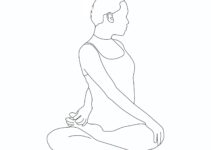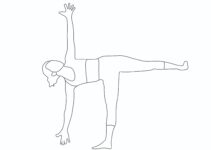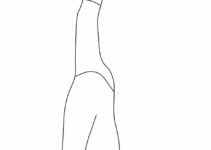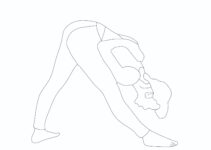What is stress?
Anything which disturbs our mind and well-being is stress. “Stress is an exaggerated response to an environmental challenge”. Stress can come from any situation or thought that makes a person feel frustrated, angry, or anxious. When a person is threatened, their nervous system releases a flood of stress hormones, including adrenaline and cortisol, which rouse the body for emergency action (fight or flight). As a result, the heart pounds faster, muscles tighten, blood pressure rises and breath quickens. But beyond the comfort zone, stress stops being helpful and can start causing significant damage to the mind and body.
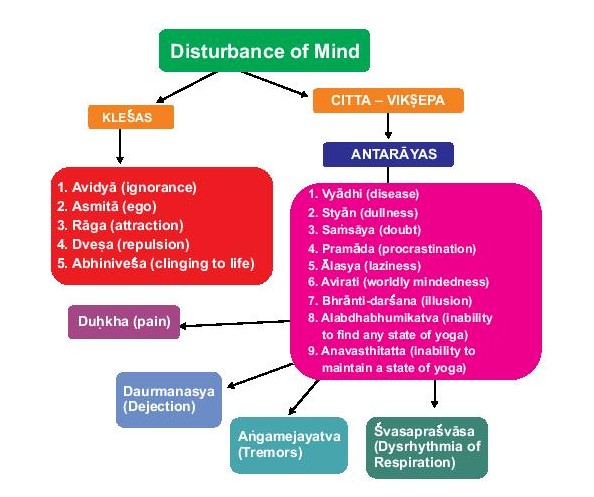
Types of Stress
From a psychological perspective, there are two types of stress:
Good stress (Eustress) and bad stress (Distress). The characteristics of Good stress are Motivates, Focuses energy and Improves performance, while the traits of lousy stress are Anxiety, Tension, Decreased performance and Mental and Physical problems
Sources of Stress (Stressors)
The different sources of stress are:
- Environment: it includes weather, noise, crowding, pollution, traffic, unsafe and substandard housing, and crime.
- Social Stressors: Social stressors include deadlines, financial problems, job interviews, presentations, disagreements, losing a loved one, and divorce.
- Physiological: Physiological stressors include rapid adolescent growth, menopause, illness, ageing, accidents, lack of exercise, poor nutrition, and sleep disturbances.
- Thoughts:
Stress symptoms
- Common effects of stress on the body: Headache, muscle tension, chest pain, fatigue, change in sex drive, stomach upset, and sleep problems
- Common effects of stress on mood: Anxiety, restlessness, lack of motivation or focus, feeling overwhelmed, irritability or anger, and sadness or depression.
- Common effects of stress on behaviour: Overeating or under-eating, anger outbursts, drug or alcohol abuse, tobacco use, and social withdrawal.
Yoga and stress
According to Yoga, our body is grouped into five sheaths (Punch koshas): Annaymaya Kosh (physical sheath), Prananmaya Kosh (Vital sheath), Manomaya Kosh (Astral sheath), Vijnanamaya Kosh (Wisdom sheath), and Anandamaya Kosh (Bliss sheath). Suppose Prana (the Vital energy) in Prananmaya Kosh is imbalanced, leading to disturbances in Anandamaya Kosh. It causes severe emotional disorders and stress. If somebody is coping with stress, practising it regularly helps to combat it effectively.
How does yoga reduce stress?
Stress induces an imbalance of the autonomic nervous system with decreased activity of the parasympathetic and increased activity of the sympathetic nervous system. Yoga downs regulation of the hypothalamic-pituitary-adrenal axis and the sympathetic nervous system. Deep relaxation and calming down of the mind through Yoga lead to an effective reduction in blood pressure, pulse rate, and respiratory rate by decreasing the level of cortisol and acetylcholine, which typically increase during the body’s response to stress.
How does yoga prevent stress?
- Yogic Sukṣma Vyayamas: These micro yogic exercises help to eliminate energy blockages in the joints and outer extremities of the physical body and work on the pranic and mental bodies as well.
- Yogic Sthula Vyayamas: These yogic exercises improve physical and mental health through down-regulation of the Hypothalamic -Pituitary Adrenal (HPA) axis and the sympathetic nervous system, thereby decreasing heart rate and systolic and diastolic blood pressures.
- Standing yoga asanas (Tadasana and Ardha Chakrasana), along with controlled breathing, stimulate the parasympathetic nervous system and help to calm and relax the mind.
- Sitting yogasanas (Ustrasana, Uttana Mandukasana, Vakrasana, and Gomukhasana help to elongate, compress and squeeze the lungs in the thoracic cavity. This leads to improved lung capacity, vital capacity, and oxygen levels in blood. As a result, the nervous system and endocrine system in the brain activate in a rhythmic and relaxed manner.
- Prone Lying yoga poses (Bhujangasana and Makarasana) improve spinal mobility, tone up the spinal nerves, and open the thoracic cavity, leading to relaxation of the body and mind.
- Supine Lying yoga poses (Shavasana) help to reduce pressure and heart rate. As a result, these big muscles relax, and the metabolic rate is reduced. Breathing becomes slower and slightly deeper. Such yoga poses give a cooling sensation while inhaling and a warm sensation while exhaling. As a result, it leads the individual to deeper and deeper levels of relaxation.
- Pranayama: Pranayama helps to reduce levels of stress, boosts the immune system, lowers cholesterol, increases antioxidant protection, enhances brain function, and increases the concentration of carbon dioxide in the blood during pranayama, which stimulates sub-cortical centres and parasympathetic tone, thus suitable for mental calming.
- Meditation: Meditation helps to increase serotonin (“happy” neurotransmitter) production. Serotonin is an important neurotransmitter and neuropeptide that influences mood and behaviour in many ways. Meditation has also been associated with increased melatonin availability, which gives feelings of happiness and well-being.
How to manage stress through yoga
With the regular practice of the following yoga poses, one can manage stress well.
- Tadasana (Palm Tree Pose)
- Hastottanasana (Raised Arm Pose)
- Skandha Cakra
- Uttana Mandukasana
- Katichakrasana (Spine Twist)
- Ardha Cakrasana (Half Wheel Pose)
- Padahastasana
- Ardha Ustrasana (Camel Pose)
- Sasankasana (Hare Pose)
- Vakrasana (Spinal Twisting Pose
- Gomukhasana (Cow head posture)
- Simhasana (Lion Pose)
- Makarasana (Crocodile Pose)
- Bhujangasana (Cobra Pose)
- Uttana Padasana
- Ardha Halasana
- Pavanamuktasana (Wind Releasing Pose)
- Sethubandhasana (Bridge Pose)
- Savasana (Corpse Pose)
- Kapalabhati
- Nadi-Sodhana or AnulomaViloma Pranayama
- Bhramari Pranayama
- Dhyana
Wonder tips to beat stress
- Take care of your health. Do exercise regularly, eat a balanced diet, and get enough sleep (6-8 hr)
- Avoid caffeine, alcohol, nicotine, and other mood-altering drugs.
- Give time to yourself. Make yourself your priority. Find time to relax, even if only for a few minutes every day.
- Avoid comparing yourself to others.
- Avoid unnecessary competition. Too much concern with winning in too many areas of life can create excessive tension and anxiety and make one unnecessarily aggressive.
- Avoid criticising others. Learn to praise the things you like in others. Focus on the good qualities of those around you.
- Fixed routine before you go to bed.
- Always be relax
- Avoid napping during the day.
- Avoid stimulants such as caffeine, nicotine, and alcohol.
- too close to bedtime.
- Ensure adequate exposure to natural light. Keep your bed clean


